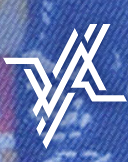"We started visualizing a political organization instead of a movement," Vecchio writes in his autobiography.
Vecchio was primed for this task during his time at Harvard. In a 2013 interview with The Politic, Vecchio reflected, "While at the Kennedy School I learned a lot about the best political practices and how I could implement them in my country."
And as with nearly all of Vecchio's endeavors, the hidden hand of the US government eased the way.
"Since USAID/OTI could not directly fund political parties," reported Gill and Hansen, "they worked with party leaders, including those from Voluntad Popular [Popular Will], to help opposition activists set up" anti-government community groups.
"We even developed new NGOs that were looking very neutral in the eyes of the government," an OTI source confessed to the two academics. "So we gave them money"They were pulling people away from Cha'vez in a subtle manner."
In establishing Popular Will, Vecchio effectively merged the burgeoning leaders of "Generation 2007" with the networks established by US-backed NGOs around the country, uniting them under the umbrella leadership of Lopez, a man widely viewed as the opposition's most charismatic national candidate.

Vecchio and Lopez during Popular Will's heyday. (Archive)
(Image by File Poto Venezuela Analysis) Details DMCA
Unlike other opposition parties, Popular Will carefully branded itself in a manner which did not alienate those who recognize the social gains made by Chavismo. In 2014, it was admitted into the Socialist International, a status which enabled the party to cast itself as progressive not only to Venezuelans, but to left-wingers across the West. (The notoriously militaristic Israeli Labor Party is also a member of the Socialist International).
When pressed to describe the party's platform, Vecchio struggled to offer anything beyond boilerplate commitments to "democracy" and "freedom."
However, one position above all has been clearly articulated: "We want oil to be a normal commodity in the international arena," the former Exxon, Mobil, and PDVSA employee told The Politic. So much for Popular Will's supposed commitment to "socialism."
Since Popular Will's inception in 2009, it garnered underwhelming support at the ballot box, being the fourth most-voted party in the opposition MUD ticket in the parliamentary elections in 2015. Despite struggling to win actual votes, Lopez and Vecchio demonstrated an uncanny ability to whip up chaos and even lethal violence in Venezuela's streets during times of crisis.
"We must create chaos in the streets"Following the untimely death of Hugo Chavez in 2013, Venezuela's opposition realized that it had bet badly on the Bolivarian Revolution dying with its leader. After losing the presidential election to Nicolas Maduro in April and suffering another shellacking in municipal elections seven months later, opposition leaders fell into a panic. When Maduro invited them to engage in a national dialogue, Popular Will turned instead to the streets.
On January 23rd, 2014, Lopez joined with a notoriously extreme opposition leader also backed by the US, Maria Corina Machado, to launch the "La Salida" or "The Exit" campaign, calling for massive demonstrations to force Maduro's resignation.
"We must create chaos in the streets through responsible civic struggle," Machado thundered.
Lopez's effort to foment unrest peaked on February 12. Flanked by Vecchio and Guaid├â │, the sandy haired firebrand stood in Caracas' Plaza Venezuela and demanded that protestors march to the Attorney General's office. Shortly after the Popular Will leaders left the stage, anti-government demonstrators heeded Lopez's call and attempted to burn the government building to the ground.
Next Page 1 | 2 | 3 | 4 | 5 | 6 | 7 | 8 | 9 | 10
(Note: You can view every article as one long page if you sign up as an Advocate Member, or higher).





